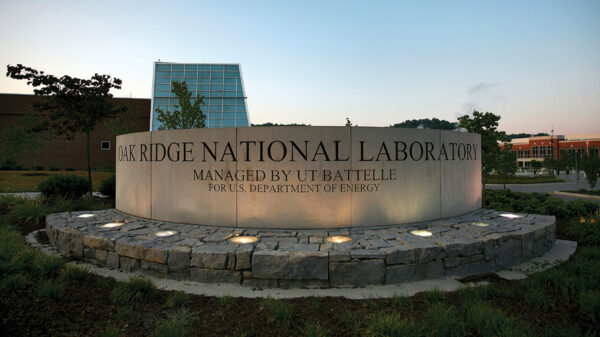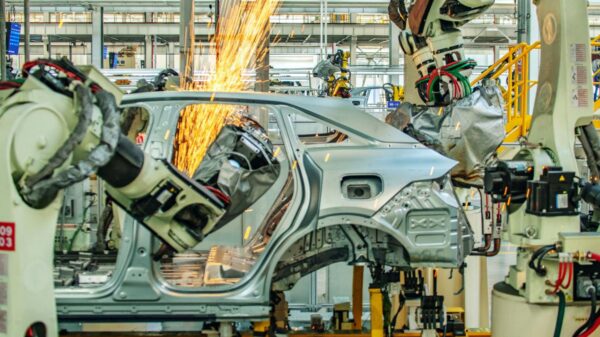Big Tech companies like Amazon (NASDAQ: AMZN), Google-parent Alphabet Inc (NASDAQ: GOOG), and Microsoft Corporation (NASDAQ: MSFT) are turning their attention to nuclear power as a means to fuel their data centers and generative-AI projects.
Announced on Tuesday, this shift is not just about meeting the soaring energy demands but also aligns with the broader goal of sustainability and reliability in energy sources.
Generative AI, which includes technologies that can produce content, solve complex problems, and simulate human cognition, requires an enormous amount of computational power.
Data centers, the backbone of AI operations, consume vast amounts of electricity to train and run these models. As AI applications become more integrated into daily life, from enhancing search engines to aiding in creative processes like writing and designing, the need for reliable, continuous power sources has never been more critical.
Generative AI requires significantly more power to operate than activities like streaming shows or scrolling through social media feeds, according to Sasha Luccioni, AI researcher and climate lead at New York-based AI developer HuggingFace.
One ChatGPT query consumes as much electricity as keeping a lightbulb on for 20 minutes, NPR reports. Luccioni advocates for mandatory transparency from companies regarding the energy consumption of their AI technology, along with the option for users to decline its use.
With more accessible data on AI’s energy demands, governments could start developing regulatory frameworks to manage it. “Reducing demand is essential,” she emphasizes.
In contrast, the tech industry is responding to increasing AI demand by investing in nuclear energy and expanding AI data centers—vast facilities with servers, routers, and cooling systems that sustain AI operations.
Read more: Well Health and Healwell AI work to expand clinical trial access
Read more: Innovative Eyewear surges on release of ‘Lucyd Armor’ smart safety specs
Modern nuclear advances prioritize safer operations
Nuclear power provides a steady, 24/7 electricity supply, making it highly reliable for the constant energy demands of data centers. Unlike solar or wind, nuclear can sustain continuous operations without dependency on weather conditions.
Small modular reactors (SMRs) are being designed to match the expanding power requirements of large tech companies. These reactors can be constructed rapidly and scaled up or duplicated to meet growing demand.
Although nuclear energy has been criticized due to past accidents, modern advances in the field prioritize safer operations, aligning with tech companies’ goals to reduce carbon emissions, as nuclear energy produces no greenhouse gases during use.
Amazon has invested in small modular reactors through partnerships, such as its collaboration with X-energy. The company aims to develop and deploy nuclear technology to support its expansive cloud computing services, particularly AWS, which underpins much of its AI infrastructure.
Similarly, Google has made significant progress by striking a notable deal with Kairos Power to explore the development of SMRs. The partnership could lead to operational reactors by the early 2030s, aligning with Google’s broader commitment to achieving carbon-free energy by that year.
Microsoft is also exploring nuclear energy options, working with Constellation Energy and considering new projects at the Three Mile Island site. However, this proposal has sparked debates due to the site’s controversial history. Through these initiatives, major tech companies are looking to nuclear power as a reliable and sustainable energy source to meet their growing demands.
Read more: WELL Health and Healwell AI join forces to produce more efficient hospitals
Read more: Psyched Wellness Amanita muscaria extract shows potential for brain health improvement
Public skepticism remains a major barrier
Nuclear power faces significant challenges and considerations despite technological advancements. Public skepticism remains a major barrier, stemming from past incidents like Three Mile Island and Chernobyl. Companies must work hard to ensure safety and build public trust.
Navigating complex regulatory landscapes and managing substantial upfront costs also presents hurdles for building nuclear facilities. The timelines for these projects often extend well into the future, which may not align with the immediate energy demands associated with AI expansion.
While the development of small modular reactors shows promise, it is still in its early stages. Companies face risks of delays, cost overruns, and the possibility of failing to meet expectations regarding efficiency and safety.
In spite of these concerns, the tech industry’s shift toward nuclear energy could create a ripple effect across various sectors.
Increased investments from major tech companies may accelerate innovation in nuclear technology, resulting in safer and more efficient reactors. This transition could also influence energy market dynamics, potentially sparking a renaissance in nuclear energy if it proves both economically viable and environmentally beneficial.
Furthermore, successful initiatives in the tech sector could impact global energy policies, encouraging more countries to reconsider or expand their nuclear capabilities.
.
Follow Joseph Morton on Twitter
joseph@mugglehead.com













